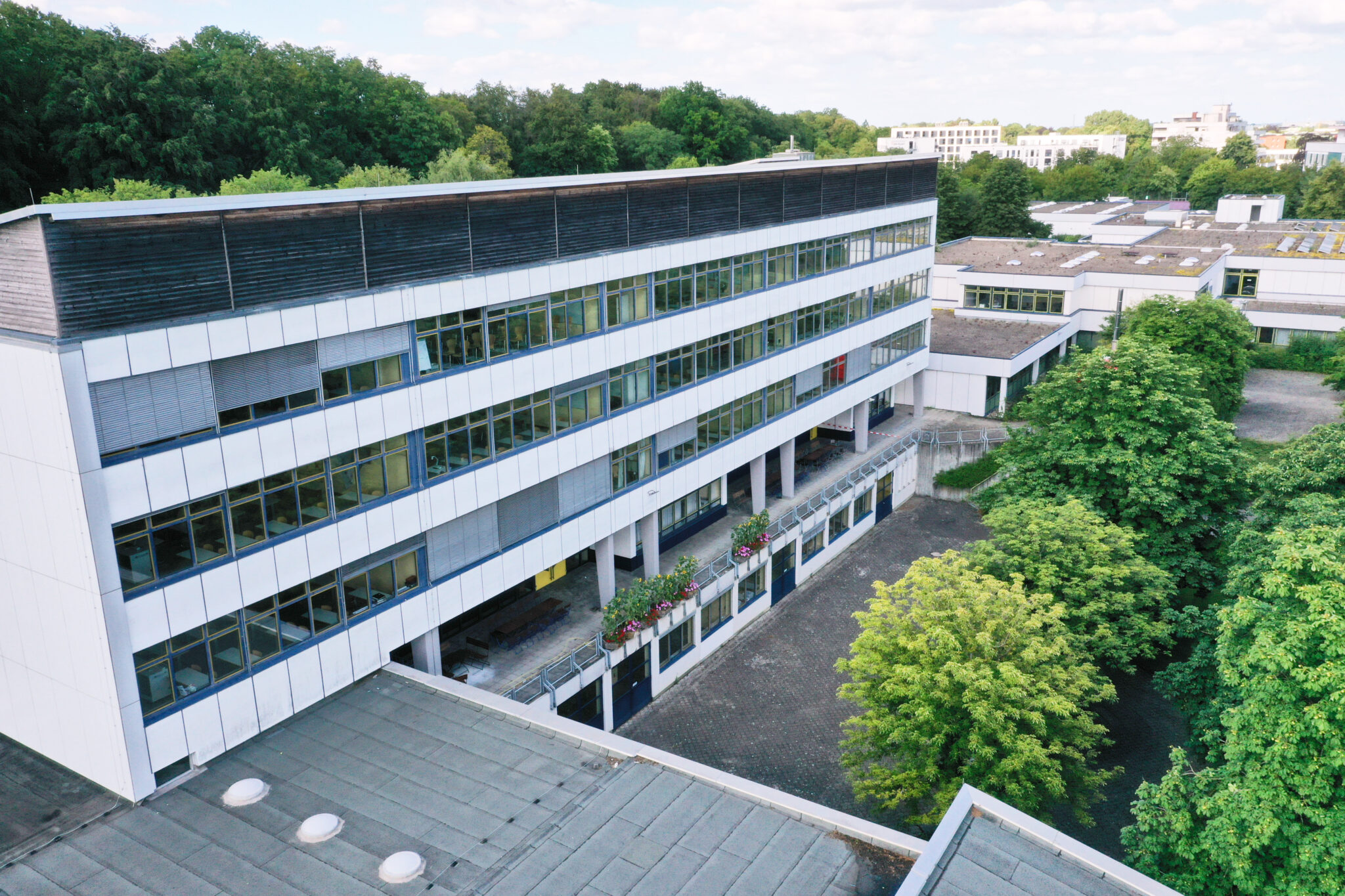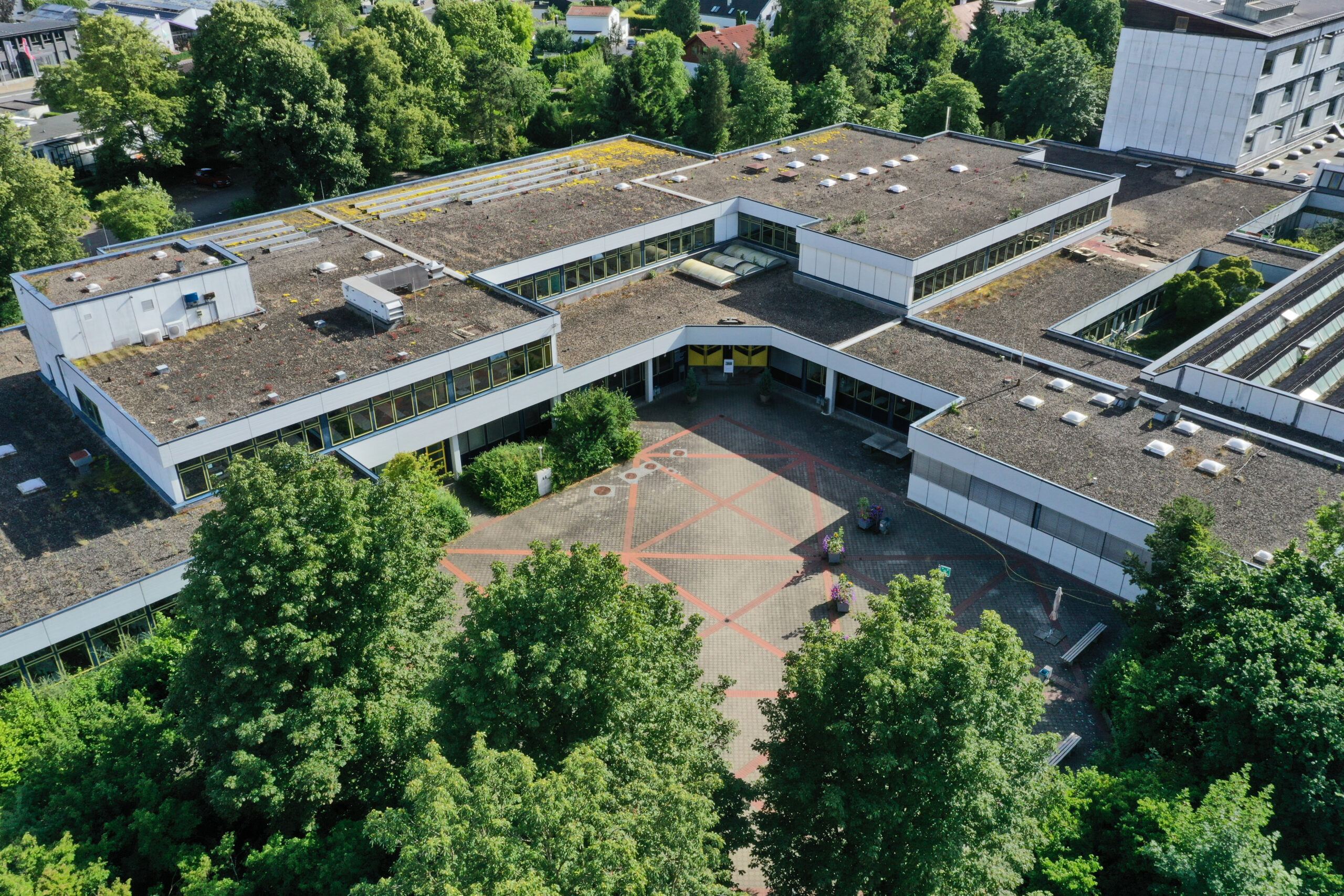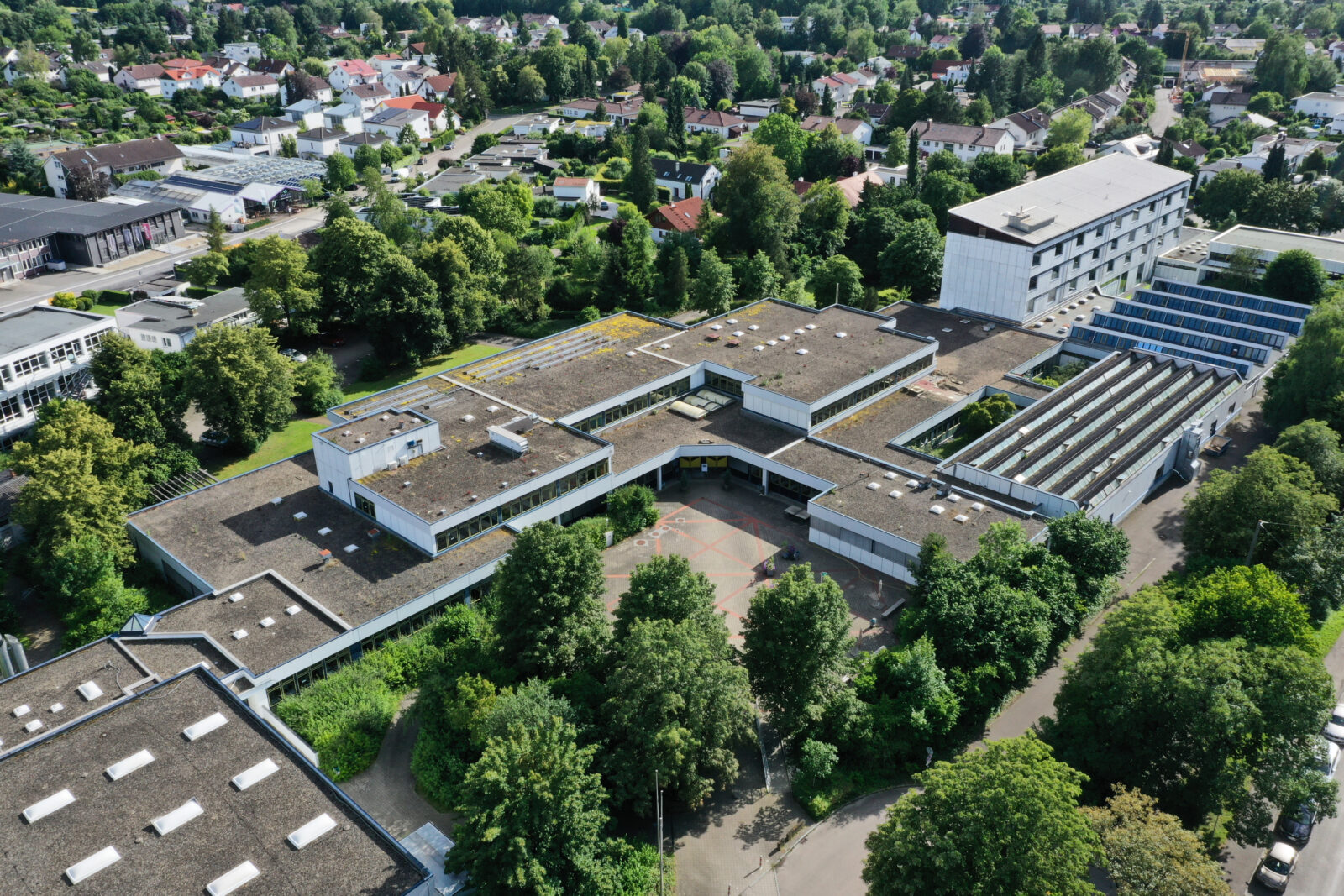Your Guide To German Schools & Vocational Training Options
Ever wondered about the true backbone of a thriving community? It's undoubtedly the educational institutions that mold future generations and drive societal progress. These aren't just places of learning; they're incubators of innovation, empathy, and critical thinking, shaping individuals ready to tackle the complexities of an ever-evolving world.
From vocational schools offering specialized training to universities fostering groundbreaking research, the educational landscape is a multifaceted ecosystem. It's a network designed to cater to diverse learning styles and career aspirations. Understanding the structure and offerings of these institutions is crucial for students, parents, and anyone invested in the future of education.
| Category | Information |
| Type of Institution | Comprehensive Vocational Education Center |
| Educational Focus | Economics, Technology, Healthcare, Social Services |
| Geographic Scope | Regional (Details provided on local institutions) |
| Specific School Types | Realschulen, Berufsfachschulen, Förderzentren, Hochschulen |
| Vocational Training Areas | Economics, Wood Technology, Healthcare, Nutrition, Automotive Technology, Single-Profession Trades |
| Additional Focus | Psychological Health Prevention and Personality Development |
| Specific Programs | State Vocational School for Childcare, State Vocational School for Social Care |
| Recognition Event | Award ceremony at the Munich Residence |
| Key Personnel | Director Klaus Weiher |
| Location Details | Close proximity to the Münster (Cathedral) |
| School Statistics | 25 schools within the city: 12 elementary, 2 Hauptschulen, 3 Mittelschulen, 2 Realschulen, 2 Gymnasien, 1 Berufsschule, 1 Förderschule, 1 Fachoberschule, 3 Private Schools, 1 Hochschule |
| Business Classification | Not specified; implies the institution is active within a particular industry through its educational programs. |
| Website | Bayerisches Staatsministerium für Unterricht und Kultus |
The educational paths offered encompass a broad spectrum, including economics, technology, healthcare, and social services. This holistic approach ensures that students have opportunities to explore various fields and discover their true passions and aptitudes. The emphasis isn't solely on academic achievement but also on cultivating well-rounded individuals prepared for the demands of modern society.
- Unveiling Patrick Warburtons Conservative Compass Insights And Discoveries
- Unveiling The Wealth And Success Secrets Of Dave Brock
A comprehensive overview of Realschulen, Berufsfachschulen, Förderzentren, and Hochschulen in the region is readily available. This accessibility is paramount for prospective students and their families as they navigate the often-complex decision-making process of selecting the right educational institution. Having a clear understanding of the available options empowers them to make informed choices that align with their individual needs and goals.
Specialized vocational schools, such as the Staatliche Berufsfachschule für Kinderpflege and the Staatliche Berufsfachschule für Sozialpflege, play a crucial role in training professionals for essential roles within the community. These institutions provide targeted instruction and practical experience, equipping students with the skills and knowledge necessary to excel in their chosen fields. The demand for qualified childcare providers and social workers is consistently high, making these programs particularly valuable.
The Berufsschule itself offers diverse training orientations spanning economics, wood technology, healthcare, nutrition, automotive technology, and specialized "monoberufe" (single-profession trades). This wide array of options reflects the dynamic needs of the local economy and provides students with pathways to a variety of rewarding careers. The focus on both theoretical knowledge and hands-on skills ensures that graduates are well-prepared to enter the workforce and contribute meaningfully to their respective industries.
- Unraveling The Enigma Bd Wongs Transformative Performance In M Butterfly
- Discover The Evolution Of Keana Barnes A Journey Of Style And Social Impact
Beyond academic and vocational training, certain institutions stand out as exemplary models for psychological health prevention and the promotion of young people's personal development. This emphasis on well-being recognizes that students' mental and emotional health is inextricably linked to their academic success. By providing resources and support systems, these schools create a nurturing environment where students can thrive both personally and academically.
The recognition of these efforts through awards and public acknowledgment further underscores the importance of prioritizing students' overall well-being. Michael Piazolo, a prominent figure, presented an award at a ceremony held in the Munich Residence to Director Klaus Weiher, who was accompanied by a delegation from the BSnu (likely an acronym for the school or organization). This event serves as a testament to the dedication and commitment of educators who go above and beyond to support their students.
Conveniently located just a few meters from the Münster (cathedral), these educational institutions are often deeply embedded within the fabric of the local community. Their proximity to cultural landmarks and other amenities fosters a sense of connection and belonging, enhancing the overall learning experience for students.
Within the city limits, a total of 25 schools cater to students of all ages and academic levels. This diverse educational landscape includes 12 elementary schools, 2 Hauptschulen (a type of secondary school), 3 Mittelschulen (another type of secondary school), 2 Realschulen, 2 Gymnasien (grammar schools), 1 Berufsschule, 1 Förderschule (special education school), 1 Fachoberschule (technical college), 3 private schools, and 1 Hochschule (university or college). This comprehensive network ensures that students have access to a wide range of educational opportunities, regardless of their individual needs or circumstances.
The involvement of these institutions within the local business community suggests a symbiotic relationship. The educational programs are likely designed to meet the specific needs of local industries, and in turn, businesses may provide internships, mentorship opportunities, and other forms of support to students. This collaboration strengthens the connection between education and employment, ensuring that graduates are well-prepared to contribute to the economic vitality of the region.
To delve deeper into the specifics, consider the role of the Realschule. These schools, bridging the gap between Hauptschule and Gymnasium, offer a more academically focused curriculum than the former, while remaining less theoretically oriented than the latter. This makes them an ideal choice for students who are seeking a strong academic foundation but may not aspire to pursue university-level studies. The curriculum often includes a focus on practical skills and vocational preparation, making graduates well-suited for entry-level positions in a variety of industries.
The Berufsfachschulen, on the other hand, provide specialized vocational training in a particular field. These schools are designed to prepare students for a specific career, such as nursing, childcare, or business administration. The curriculum typically includes a mix of classroom instruction and hands-on training, allowing students to develop the skills and knowledge they need to succeed in their chosen profession. Upon graduation, students are often eligible for immediate employment or may choose to pursue further education in their field.
Förderzentren, also known as special education schools, play a crucial role in supporting students with learning disabilities or other special needs. These schools provide individualized instruction and support services to help students reach their full potential. The curriculum is often adapted to meet the specific needs of each student, and teachers are trained to work with students with a wide range of disabilities. Förderzentren are an essential component of a comprehensive educational system, ensuring that all students have the opportunity to succeed.
Hochschulen, encompassing both universities and colleges, represent the highest level of education in the region. These institutions offer a wide range of academic programs, from undergraduate degrees to doctoral studies. Hochschulen are centers of research and innovation, contributing to the advancement of knowledge in a variety of fields. They also play a vital role in preparing students for leadership positions in business, government, and other sectors.
The emphasis on psychological health prevention and personal development within the educational system reflects a growing recognition of the importance of student well-being. Schools are increasingly implementing programs and initiatives to promote mental health awareness, reduce stress, and build resilience. These efforts may include counseling services, mindfulness training, and peer support groups. By creating a supportive and nurturing environment, schools can help students thrive both academically and personally.
The award presented to Director Klaus Weiher highlights the importance of leadership in education. Effective school leaders are able to create a positive school culture, attract and retain talented teachers, and foster a strong sense of community. They also play a crucial role in advocating for the needs of their students and ensuring that they have access to the resources they need to succeed. Director Weiher's recognition is a testament to his dedication to the students and staff of his school.
The location of these educational institutions near the Münster adds to their appeal. The Münster is a significant cultural landmark, and its presence creates a sense of history and tradition. The proximity to other amenities, such as shops, restaurants, and parks, makes the area an attractive place to live and learn. The integration of the educational institutions into the fabric of the local community enhances the overall learning experience for students.
The distribution of schools throughout the city ensures that students have access to education regardless of their location. The presence of multiple elementary schools, secondary schools, and vocational schools provides a range of options for students and their families. The availability of private schools and special education schools further expands the educational landscape, catering to the diverse needs of the community. This comprehensive network of schools is a valuable asset to the city.
The involvement of these educational institutions in the local business community demonstrates their commitment to preparing students for the workforce. Through internships, apprenticeships, and other partnerships, students gain valuable hands-on experience and develop the skills that employers are seeking. This collaboration benefits both students and businesses, creating a pipeline of qualified workers and fostering economic growth. The integration of education and industry is essential for ensuring the future prosperity of the region.
Furthermore, the curriculum offered in these various institutions is continually updated to reflect the changing demands of the global economy. For instance, the economics programs are likely to incorporate topics such as globalization, sustainable development, and technological innovation. The technology programs are likely to focus on emerging fields such as artificial intelligence, cybersecurity, and data analytics. The healthcare programs are likely to address the challenges of an aging population and the increasing prevalence of chronic diseases. And the social services programs are likely to focus on issues such as poverty, inequality, and social justice.
The emphasis on practical skills and vocational training is particularly important in today's economy. Many employers are struggling to find workers with the skills they need to fill open positions. By providing students with hands-on training and practical experience, these educational institutions are helping to close the skills gap and prepare students for successful careers. This focus on vocational training is essential for ensuring that the region has a skilled workforce that can compete in the global economy.
In addition to vocational training, these institutions also emphasize the importance of critical thinking, problem-solving, and communication skills. These skills are essential for success in any career, and they are also highly valued by employers. By fostering these skills in their students, these educational institutions are preparing them to be lifelong learners and to adapt to the changing demands of the workplace.
The commitment to psychological health prevention and personal development is another key strength of these educational institutions. By providing students with access to counseling services, support groups, and other resources, they are helping them to overcome challenges and to reach their full potential. This focus on student well-being is essential for creating a positive and supportive learning environment where all students can thrive.
The leadership of these educational institutions plays a crucial role in their success. Effective school leaders are able to create a vision for their schools, to inspire their teachers and staff, and to build strong relationships with parents and the community. They are also able to advocate for the needs of their students and to secure the resources they need to succeed. The recognition of Director Klaus Weiher is a testament to the importance of strong leadership in education.
The location of these educational institutions near the Münster is a significant advantage. The Münster is a beautiful and historic landmark that attracts visitors from all over the world. The proximity to the Münster provides students with a unique opportunity to learn about history and culture. It also makes the area an attractive place to live and learn.
The distribution of schools throughout the city ensures that all students have access to education. The presence of multiple elementary schools, secondary schools, and vocational schools provides a range of options for students and their families. The availability of private schools and special education schools further expands the educational landscape, catering to the diverse needs of the community. This comprehensive network of schools is a valuable asset to the city.
The involvement of these educational institutions in the local business community is essential for their success. By partnering with local businesses, they are able to provide students with internships, apprenticeships, and other opportunities to gain real-world experience. This collaboration benefits both students and businesses, creating a pipeline of qualified workers and fostering economic growth.
Ultimately, the success of these educational institutions depends on the commitment of teachers, staff, students, parents, and the community as a whole. By working together, they can create a vibrant and supportive learning environment where all students can thrive. These institutions are more than just places of learning; they are essential building blocks of a strong and prosperous community.
Consider, for example, the transformative impact of a well-designed vocational program in automotive technology. A student passionate about cars could not only learn the intricacies of engine repair and diagnostics but also develop valuable problem-solving skills applicable to countless other situations. This hands-on experience, coupled with theoretical knowledge, prepares them for a rewarding career in the automotive industry or even inspires them to pursue further education in engineering or related fields.
The same holds true for programs in healthcare. A student enrolled in the Staatliche Berufsfachschule für Kinderpflege or Sozialpflege gains the knowledge and skills necessary to provide compassionate and effective care to vulnerable populations. They learn about child development, nutrition, hygiene, and safety, as well as the legal and ethical considerations involved in caring for children or adults with special needs. This training not only prepares them for a rewarding career but also instills in them a sense of social responsibility and a commitment to serving others.
Moreover, the emphasis on psychological health prevention and personal development extends beyond specific programs to encompass the entire school environment. Teachers are trained to recognize the signs of stress, anxiety, and depression in students and to provide them with appropriate support. Schools may offer counseling services, mindfulness workshops, and other resources to help students manage their mental and emotional health. By creating a safe and supportive environment, schools can help students thrive both academically and personally.
The leadership of these educational institutions is also crucial for their success. Effective school leaders are able to create a positive school culture, attract and retain talented teachers, and build strong relationships with parents and the community. They are also able to advocate for the needs of their students and to secure the resources they need to succeed. The recognition of Director Klaus Weiher at the Munich Residence is a testament to the importance of strong leadership in education.
The location of these educational institutions near the Münster adds to their appeal. The Münster is a beautiful and historic landmark that attracts visitors from all over the world. The proximity to the Münster provides students with a unique opportunity to learn about history and culture. It also makes the area an attractive place to live and learn. The integration of education and industry is essential for ensuring the future prosperity of the region.
Furthermore, exploring the "monoberufe" offered at the Berufsschule reveals a fascinating aspect of the educational system. These single-profession trades, often rooted in traditional craftsmanship, provide students with the opportunity to master a specific skill, such as tailoring, shoemaking, or watch repair. These trades not only preserve valuable cultural heritage but also offer rewarding career paths for students who are passionate about working with their hands and creating unique products.
In essence, the educational landscape described here is a complex and dynamic ecosystem that is constantly evolving to meet the changing needs of students, employers, and the community as a whole. By providing a wide range of educational opportunities, fostering student well-being, and building strong partnerships with local businesses, these institutions are playing a vital role in shaping the future of the region. They are not just places of learning; they are incubators of innovation, empathy, and critical thinking, shaping individuals ready to tackle the complexities of an ever-evolving world. The dedication and commitment of educators who go above and beyond to support their students should be celebrated.
- Unveiling The Legacy Discover The Identity Of Willie Geists Father
- Discover The Unforgettable World Of Patrick Warburton Insights And Revelations

Wir über Uns Staatliche Berufsschule Neu Ulm

Wir über Uns Staatliche Berufsschule Neu Ulm

Wir über Uns Staatliche Berufsschule Neu Ulm